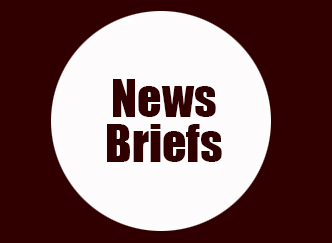Federal Cuts Could Silence Rural MN Radio Stations
CALLAWAY, Minn – A proposed $1.1 billion cut to the Corporation for Public Broadcasting could silence Niijii Radio on the White Earth Reservation and dozens of other rural Minnesota stations that rely on federal support.
Niijii Radio, known as KKWE, depends on CPB funding for half its operating budget. The station is often the only real-time news source for elders and residents on the reservation. “If we lose the ability to broadcast, many people will lose the ability to follow tribal government,” said general manager Margaret Rousu.
The funding threat stems from a bill passed by the U.S. House earlier this month, part of a broader $9.4 billion effort by Republicans to cut federal spending. Public media leaders warn that the cuts would severely impact small, independent stations across the country.
Minnesota received $17.2 million in CPB funds last year. While large networks like NPR and PBS are most recognized, local stations like KAXE in Grand Rapids, WTIP in Grand Marais, and Pioneer 90.1 in Thief River Falls say they face budget crises if funding disappears.
“These are life-saving resources,” said KAXE general manager Sarah Bignall, recalling how listeners relied on their station during recent forest fires. WTIP’s Matthew Brown said his station receives 25% of its funding from CPB and may need to cut staff or scale back operations.
Sen. Amy Klobuchar, D-Minn., has voiced opposition to the bill, calling the cuts “offensive.” Meanwhile, Sen. Mike Rounds, R-S.D., asked if Native-run stations could be spared, citing their critical role in emergency communication.
AMPERS, a statewide network of community stations, estimates two to three stations would shut down entirely without CPB support. “There’s a compounding effect,” said AMPERS CEO Joel Glaser. “Losing federal dollars could also mean losing state grants.”
The bill now heads to the Senate, where its future remains uncertain.
New Law Eases Mascot Exemption for MN Schools
ST. PAUL, Minn – A change to Minnesota’s American Indian mascot ban will make it easier for public schools to seek exemptions by allowing approval from a nearby tribal nation rather than all 11 tribal nations and the Tribal Nations Education Committee.
The revised law is expected to help districts like Grand Rapids Area Schools, which plans to reapply for an exemption for its Thunderhawks mascot after being denied last year. The law also requires support from a district’s American Indian Parent Advisory Committee, if one exists, and removes the deadline for exemption requests.
School officials say mascot changes can be costly. Grand Rapids superintendent Matt Grose estimated an $800,000 price tag, while Sleepy Eye Public Schools projects $450,000 to change from the “Indians” to the “Sleepy Eye Storm.”
Red Wing Public Schools also plans to reapply. Its “Wingers” mascot includes a red feather referencing Dakota leader Chief Red Wing. The Prairie Island Indian Community has expressed support for their new application.
State Sen. Mary Kunesh, DFL–New Brighton, said she will push again for funding next session to help schools with the costs. Tribal leaders continue to oppose harmful or stereotypical mascots.
Court Blocks Trump from dismantling Dept of HHS
ST. PAUL, Minn – A federal judge has temporarily blocked the Trump administration’s sweeping plan to dismantle the U.S. Department of Health and Human Services, following a lawsuit led by Minnesota Attorney General Keith Ellison and 19 other attorneys general.
U.S. District Judge Melissa R. DuBose granted a preliminary injunction halting mass layoffs and the restructuring of several key HHS offices, including the CDC and Head Start, while the case proceeds.
Attorney General Ellison said the decision protects critical public health and social services in Minnesota. “I am pleased to have won a court order stopping the Trump Administration from dismantling this crucial government agency,” he said.
The lawsuit, filed in May, challenged a March 27 directive from HHS Secretary Robert F. Kennedy Jr. that merged 28 agencies into 15, eliminated 10,000 jobs without warning, and disrupted services such as disease monitoring, poverty guidelines, and early childhood education.
The injunction prevents further implementation of the overhaul at four key offices: the CDC, the Center for Tobacco Products, the Office of Head Start, and the Office of the Assistant Secretary for Planning and Evaluation.
The legal challenge was led by New York Attorney General Letitia James and joined by attorneys general from 18 states and the District of Columbia.
‘Free Water’ Law Takes Effect in Minnesota
ST. PAUL, Minn – A new law requiring access to free drinking water at large events takes effect this month in Minnesota.
Authored by Rep. Leigh Finke (DFL-St. Paul), the “Free Water” law mandates that events with more than 100 people must provide free bottled water, allow sealed bottles, or permit empty bottles for refills.
“This bill was overwhelmingly supported because everyone understands – water is life,” Finke said. “It ensures no one has to choose between hydration and high prices.”
Dakota Nation Funds Wellness Program for Native Girls
SHAKOPEE, Minn – The Shakopee Mdewakanton Sioux Community has awarded a $330,000 grant to Girls on the Run Minnesota to expand its health and wellness programs for Native American girls.
The statewide after-school program helps girls in grades 3–8 build confidence and life skills through physical activity and group discussions. The grant will support up to 600 Native youth over the next three years, with culturally relevant programming offered through schools and Native-led nonprofits.
The funding is part of the tribe’s broader IndigeFit Kids initiative — a 6 million campaign to address health disparities among Native youth. Organizers say the goal is to foster joy, self-worth, and community connection through mentorship and movement.





